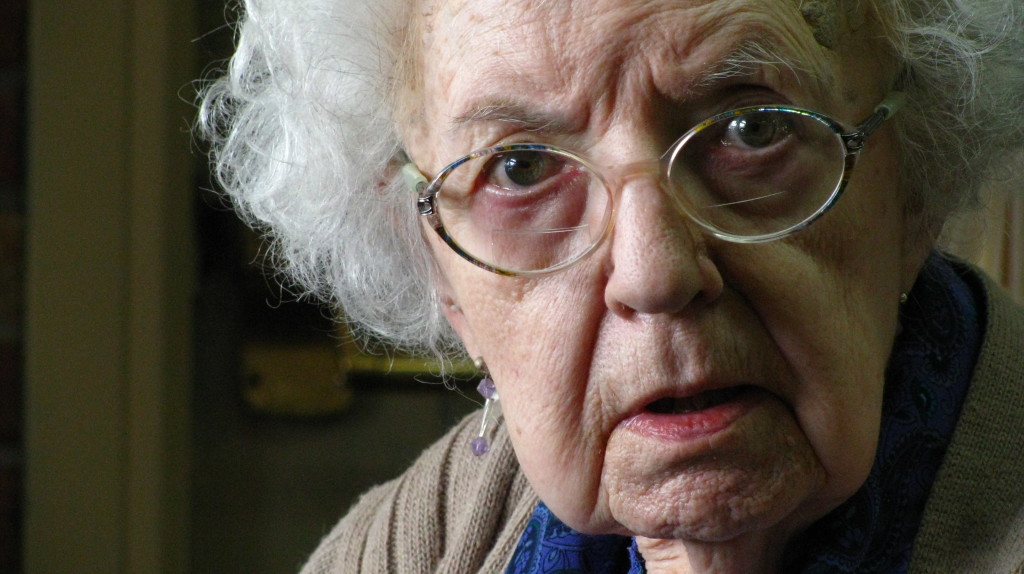Sometimes a family member/caregiver does not know what to expect from day-to-day or minute to minute when managing a loved one with dementia.
Here are some tips for handling delusions and the dementia patient from a recent talk by New York neurologist Dr. Norman Pflaster.
What are Delusions?

People with dementia may suffer from delusions, which are fixed, false beliefs. Delusions can be relatively benign (i.e. the patient believes he is at work when he is really in a nursing home), or they may have a paranoid quality to them (the patient believes that the neighbors are trying to break into the patient’s house to steal his money.)
Sudden Onset of Delirium Can Signal a Medical Problem
The onset of delusions or deterioration in the dementia patient’s functioning frequently signals a medical problem, especially if the onset is sudden. According to Pflaster, “It may be as simple as a urinary tract infection, but blood clots from a fall or a stroke may be responsible. Notify the doctor, who should implement testing immediately to rule out any reversible medical causes, and note that the delirium does not necessarily mean that the person’s dementia is progressing.”
How to Respond to Delusions
If medical causes are excluded, the delusional thinking is probably a result of the dementia itself. Delusions can come and go. Caregivers should work with the delusion rather than try to convince the patient that the delusion is false. By definition a delusion is a fixed false belief (i.e. unchangeable.) Trying to make the dementia patient see reason can cause the patient agitation and distress.
Try to work around the delusion and distract the patient. If the presence of the neighbors in the next yard bothers the patient, keep the blinds closed, or tell him that he is safe because the doors are locked and they can’t get in. Let the patient know that you are keeping him safe.
When to Call 911
Call the doctor or 911 if:
- the delusions have begun seriously interrupting day-to-day activities (i.e. the patient locks herself in the bathroom and won’t come out due to fear of the neighbors;)
- if the patient exhibits violent or threatening behavior toward the caregiver;
- the patient becomes so agitated or delirious as to be a danger to herself (i.e. will not comply with medical instructions like taking medication or being careful not to fall.)
In these cases, medication might be needed to manage the delusions.
Medications for Delusions
If the standard medicines for dementia like Aricept, Excelon and Namenda have failed and behavioral management isn’t working, neuroleptic medications such as Risperdal or Seroquel may be effective, especially if the patient is delirious or exceptionally agitated. These medications can have very serious side effects. Sometimes the medicine is only needed temporarily to restore the sleep/wake cycle, which can relieve delusions for a time.
Be sure that the doctor informs you of all of the risks and benefits. The classic protocol is not to prescribe sedating drugs in the Valium family (benzodiazepines) because these can make the person’s cognitive abilities worse. But sometimes, the doctor and patient’s family will agree to try this if, for various reasons, there are no other alternatives.
Sometimes anti-seizure medications like Depakote are used. If drugs are prescribed, especially Valium, consider putting side rails on the patient’s bed so she cannot fall out of bed, or consider putting the patient’s mattress on the floor.
While statistics show that some of these sedating drugs are not that successful, on a case by case basis doctors often achieve very good results and so the doctor will want to consider all options to see if the patient can continue to be cared for at home. However, sometimes a nursing home is necessary.
The most important thing is to look at the emotion caused by the delusion. Work to calm that emotion.
This is an incomplete guide and is not a substitute for, nor is it intended to be personal medical care or advice. Always see a physician for medical advice.
©Lisa C. DeLuca, all rights reserved. It is a violation of copyright law to reproduce this work on the web or for profit without written permission from the author. This article was originally published on the web in 2008. Please contact the author for permission.
